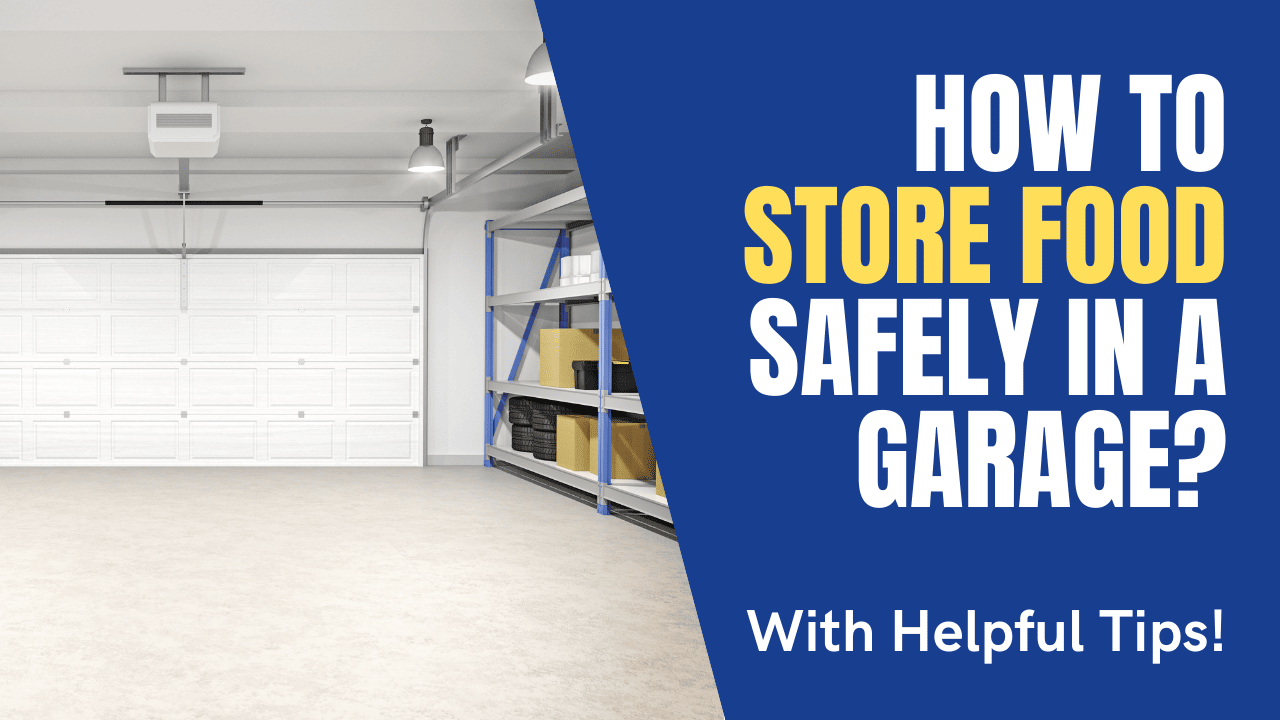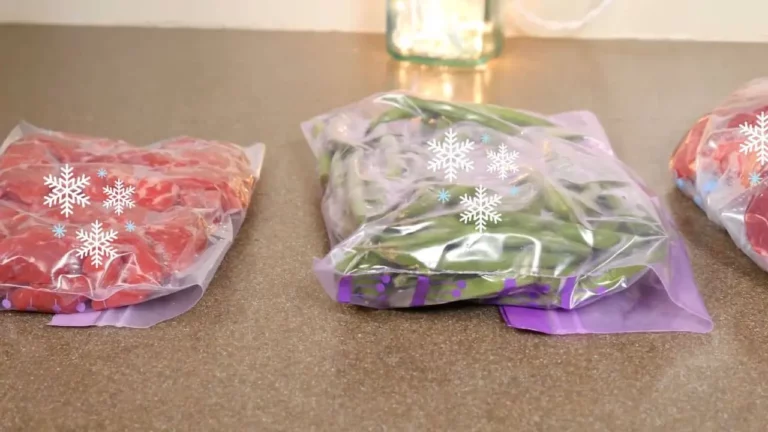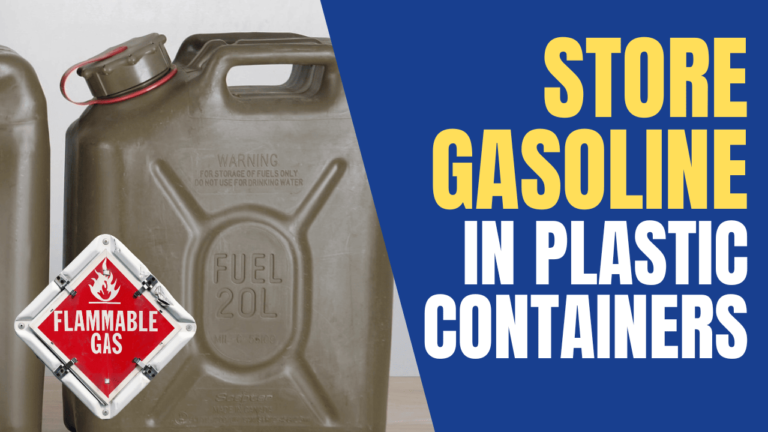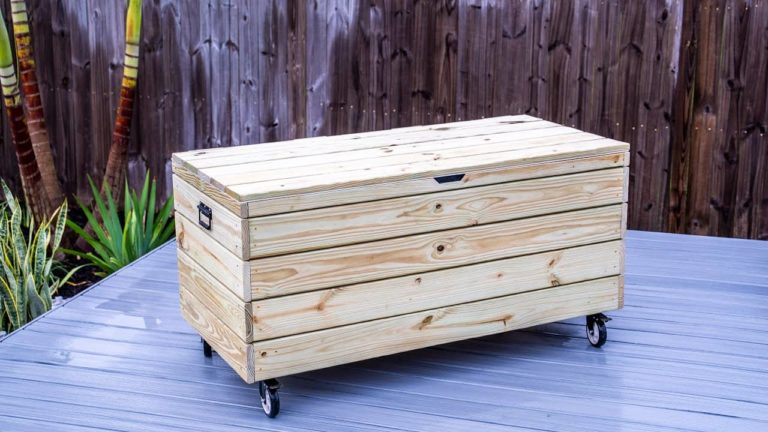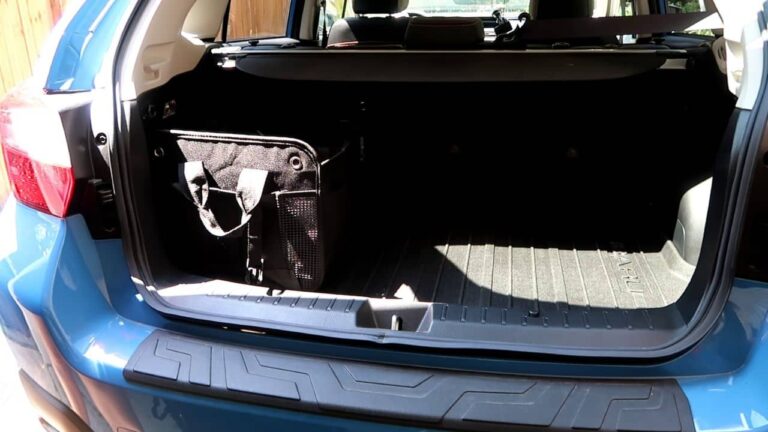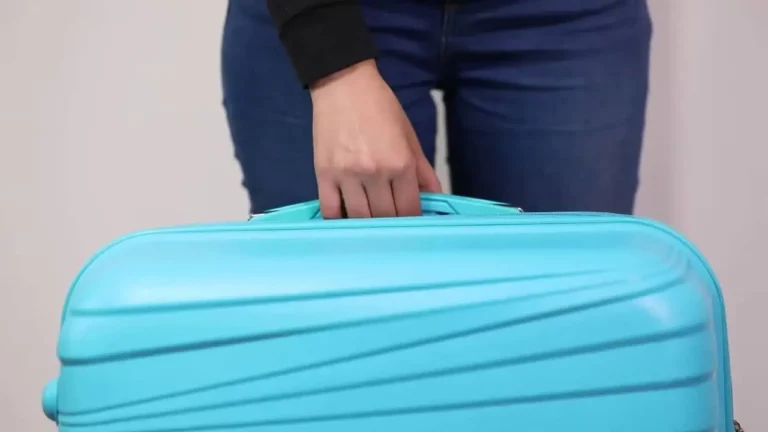How To Store Food Safely In A Garage (Helpful Tips To Avoid Issues)
Whether you’re a prepper or not, the pandemic proved that having extra food is always a bane. However, long-term food storage is not a bed of roses. So, how to store food safely in your garage?
I’ll explain the easiest ways to store a wide variety of foods and beverages throughout the year.
10 Best Ways To Store Food in Your Garage
Stocking food boxes and cartons in your garage is a better way than cluttering your house or pantry. However, you should first know how to different types of food correctly.
Let’s explore!
#1 Storing canned food in the garage: Is it a good idea?
Yes, it’s a good idea to stock canned fruits, fish, soups, chicken, beans, and even red meats in your garage.
Why? Typically, canned goods are unaffected by dropping temperatures unless the seal isn’t broken. Moreover, stocked foods in cans are safe to eat even if they freeze, unlike veggies or cured meats.
The USDA (United States Department of Agriculture) suggests keeping canned food items in the dark and cool places. Additionally, you should also make sure products aren’t kept in damp spaces as corrosion can rust the cans.
How to store canned food in your car shed?
- Rack organizers
- Metal racks make canned products easily accessible.
- Plastic organizers are great for keeping track of your cans with little to no effort.
- Standing dispensers save space and make accessibility a cakewalk.
- Shelf steps are a great way to fill up deep cabinets without losing your cans in them.
- Overdoor organizers make stocked products easy to reach.
#2 Fresh vegetable storage in your garage
Don’t have a root cellar? Regardless, all you need to do is a good car shed with cool or warm temperatures for storing different products. Firstly, divide your veggies by their temperature requirements, as I describe below.
How to keep fresh vegetables safely?
| Types | Humidity Recommended | Ideal Temperature | Vegetables | Comments |
|---|---|---|---|---|
| Moist and cold vegetables | 90% | 32°F to 42°F | Carrots, radishes, celery, rutabagas, beets, and turnips. | Moreover, they preserve best in moist soil. |
| Dry and cold veggies | 60% | 32°F to 40°F | Pears, Brussel sprouts, potatoes, and apples. | Also, wrap the fruits in paper and stock the veggies in soil. |
| Cold and dry vegetables | 60% | 40°F to 50°F | Garlic, shallots, and onions. | Fare well when hung in braids or mesh bags, boxes, and baskets. |
| Warm and dry veggies | 60% | 50°F to 60°F | Squash, pumpkin, and sweet potatoes. | They might need curing before long-term storage. |
Additionally, you can store vegetables in the garage in ventilated containers like wooden crates and cardboard boxes for a long time. Moreover, ensure the garage is dark and cool so that the crops don’t start sprouting!
#3 Storing boxed foods
Dry foods like cereals, flour, pasta, baking mixes, and even your favorite pack of cookies need extra protection. That’s because they’re easily attacked by pests in storage places. If not, mold will get them between seasonal changes!
How to store dry foods safely?
- Place boxed foods in metal boxes with airtight lids.
- Double bag all boxes unless your shed is pest-free.
- Mylar bags and ziplock bags are excellent for controlling spoilage.
#4 Bagged foods storage
Much like boxed foods, bagged foods like rice, lentils, flour, and sugar are easy for rodents to chew into. Nevertheless, you can preserve them for up to a whole year without spoilage or discoloration when stored in buckets.
How to store Bagged foods in your garage?
- Make use of food-grade buckets that come with an airtight seal.
- You can also keep bagged foods in bulky three-gallon ziplock bags too.
- Don’t stock them in warm areas. Go for a cool, dark, and dry location in your car shed.
- Mylar bags are a good option for storing lentils and rice.
#5 Storing beverages, juices, and water
While most of us already know liquids are better in the fridge, you can also preserve them without any refrigerator. But, liquid drinks like fruit juices, kefir, and shakes will stay safe until opened until their expiry date.
In addition, sports can go up to nine months and water for six months.
According to the USDA, you can stock powdered milk for the foreseeable future. Carbonated drinks and fruit juices can lose flavor and get contaminated easily if you aren’t careful.
How to stock water and other beverages?
- Arrange beverages neatly in closed cabinets in colder areas of your garage.
- Don’t let your beverages freeze, as they can expand and make a lot of mess.
- Store them away from direct sunlight and heat.
- Keep dried milk in mylar bags with oxygen absorbers.
#6 Storing Alcoholic beverages
Heat is the arch-enemy to watch for when it comes to alcoholic drinks like liquor, beer, and wine. Do you know alcohol can even cook up in high heat? Moreover, beer can go flat quite quickly too.
However, liquors and wines can stay intact forever until opened with little care.
How to keep alcoholic beverages securely?
- Keep all types of alcoholic beverages away from heat and light.
- Cabinets and racks are a great way to store beers with low ABV for up to six months.
- Wines can stay up to six months around 65° F when unopened. Remember to keep the area moist as lack of it can dry out the corks and oxygenate your wines.
- Liquor can remain intact for up to 12 months after opening and forever on shelves when unopened between 55°F to 60°F.
- Make sure to keep off the ground and out of reach from children.
#7 Non-vegetarian food storage
Meats of most kinds can be stored safely in your garages if you cure them adequately without freezers. We’ve already talked about canned meats. Nonetheless, cured, dehydrated, dried, smoked meats are also great for long-term storage.
Additionally, brined, pickled, and potted meats can also be stored for eons without spoilage. Plus, you can store meats in lard and its own fats like confit or pemmican for ages on end. Another viable way to preserve meat is by powdering it.
What to remember when storing non-vegetarian foods in your garage?
- Always go for the freshest produce. Moreover, USDA says bacteria on meats double at room temperature in just 20 minutes.
- Smoked and cured chicken can stay for up to 14 days with refrigeration and a year in the freezer.
- You can vacuum seal salami and cured pork to store it for months on end.
- Store pepperoni at lukewarm temperature when unopened for up to 1.5 months.
- Storing pancetta and prosciutto in their original packaging can keep it safe for up to a whole year.
- Wrapping cured chorizos in tea towels stay intact for up to 24 weeks.
#8 Storage for foods in plastic-container
Many foods like sauces, ketchup, mustard, mayonnaise, butter, and even fruit juices come in plastic containers. Regardless, you can still store them in your shed for months without damage.
How to store foods in plastic containers in your garage?
- Never keep plastic containers under direct sunlight.
- Double pack them in metal containers with airtight lids or mylar bags to be super-safe.
- Keep them in cool and dark places without any moisture.
- Place your liquid foods into canning jars for better preservation.
Here’s a video from HealthyPrepper for packing chips in mylar bags safely.
#9 Storing foods in glass containers
Whether you made pickles on your own or got dips in fancy mason jars, glass is a better option for long-term storage. The best solution to preserve them is by using glass canning jars or vacuum jars made of tempered glass.
Note that things like homemade salsa, jams, jellies, sauces, butter, vinegar, cider, oil, condiments, kimchi, spices, preserves, and conserves are naturally acidic. Hence, they keep bacteria at bay on their own!
How to safeguard food items in glass containers in your garage?
- Always keep glass jars away from direct heat and sunlight.
- Keep foods in glass jars in dark and cool places like cabinets and cupboards.
- Condiments and spices are typically shelf-stable even after opening.
- Make sure to use sealable lids for storing foods in glass containers.
#10 Storing pet foods in the garage
While freeze-drying pet food is as vital as freeze-drying uncured meats for human consumption, there are several other ways to store it too. Firstly, you can use plastic bins. Additionally, ziplock bags and airtight containers are excellent for ensuring your foods last a long way.
How to store pet foods in your garage?
- Use safe plastics to store pet food.
- Never store wet pet food out of the fridge.
- Opened dog foods can stay up to six months in bins.
- Double bag the food with the original packaging.
Learn more essential tips on storing dog food safely in bulk over the long term.
What Threatens Food Storage in Garages?
Buying in bulk isn’t just for survivalists or preppers. If you’re smitten by long-term food storage, here’s what you need to know:
Sunlight
You must ensure food products aren’t facing direct sunlight during storage. Otherwise, your products will heat up and lead to a loss of nutrients and vitamins.
Temperature
Apart from maintaining the right temperature, it’s important not to stock foods and beverages in places where temperature fluctuations are typical. Just as high heat expands and destroys preserved food, freezing cold can destroy their integrity.
Humidity
A large number of rusting of cans and dampness result from poor regulation of humidity. If humidity isn’t controlled in your garage, it can lead to mold, mildew, and rot.
Oxidation
From rancidity in oils and discoloration in veggies, oxidation results in decay and rotting quicker than usual. That’s why it’s essential to remove air as much as possible before sealing foods in bags and containers for storage. Additionally, add oxygen absorbers to containers to keep your food fresh.
Pests
Rodents, insects, roaches, and critters chew open containers and bags because they can smell foods from far off. Hence, always install racks and organizers a few feet above the ground.
How To Store Foods in Your Garage in Different Seasons?

While most foods need dry and cool places for stocking, the temperature in most garages fluctuates throughout the year. Hence, insulating is the only way to prevent the worst of it.
Although, spring, fall, and summer pose little to no risks.
But make sure to check the temperature in your car shed during different seasons and climates to be on the safer side.
How To Securely Store Food in Garages? Tips From Experts
Apart from keeping food off children, pets, and random guests, you must also take care of the following.
- Insulating your garage and installing AC is an excellent way to keep the temperature in check come rain or snow.
- Never keep paint, firewood, flammable items, and electronic products with foods in your garage.
- Always add labels to food products, including their expiry dates, to stay ahead of decay.
- Try to keep an updated stock inventory lest you run out of essentials when an emergency hits.
- Keep your garage free from dust and dirt to prevent any unwanted growths and contamination in food.
Start Storing Foods in Your Garage the Right Way
Garages are perfect for storage especially when you don’t have enough space in the house.
Frankly, stockpiling food boxes, cans, and bags for prepping has been going on for a hundred years now. So, there’s nothing to worry about if you ask me.
However, certain foods are easy to store and others not so much. What’s more, poor food storage can even lead to bacterial growth, mold, and rot.
With all the tips and pointers to preserve diverse foods throughout different seasons, being ready for the worst isn’t hard. If you’re all set to prep food cans, meats, pasta boxes, flour bags, liquor, and pickles in your garage, remember to get a handy vacuum sealer to take insulation a notch up.

